Every week, the Talon interviews a member of the Oklahoma Christian University community, a “Newsmaker,” to answer questions about their role on campus. On November 10, the Talon interviewed Spiritual Life Mentor, Sarah Bailey.
How do you integrate chapel activities with the overall spiritual life and mission of the university?
“It depends on the time of the semester, but typically, mornings are kind of quiet. Before things get ramped up, I like to get into the office and get through emails and office stuff. I leave about 10:20 and go to the chapel, get all the scanners into the place and get ready for that, and then do chapel. Then, go back for a little bit afterwards and take a lunch break. And then in the afternoon, I’m usually just interacting with students. It’s usually pretty busy in my office in the afternoons with who knows what walks in. It kind of quiets back down about 4:30 do a little bit more stuff then wrap up for the day.”
How do you integrate chapel activities with the overall spiritual life and mission of the university?
“When we’re planning our chapels, the goal is we like having everybody together a couple times a week. We think that’s good for the community. We think that there’s a lot of value in being together, but we also see that there’s a lot of value in coming together in smaller groups, so that’s why we have community chapels. The opportunity to strengthen women’s relationships in women’s chapel, as well as give them time and space to hone their leadership skills. I think it’s important for you guys to get to know each other in your majors but also see your faculty leading out in that way. We really try to make it as beneficial for the students as we can. The truth is, we know not everyone wants to go to chapel, so we try to make it worth your time. Make it valuable if you walk in with an open heart and an open mind, that you can get something out of your time.”
What do you think is the greatest spiritual question or challenge that students face today?
“I think everybody would have a different answer. I think that there are those who need to know all the details. They need to know how it all works and how it fell into place. I think there’s another group of people who know their faith is strong, and they don’t need to know how it works, kind of like I don’t. I don’t need to know how my car works to trust that it’s going to get me to the store. And I think faith is a lot like a personality thing. You either need to know all the things, or it doesn’t matter. My faith is strong, regardless of whether it happened the way it says. I think the biggest thing is finding your place and your way to navigate your faith.”
Can you tell us about a time when you really felt like you were a second mom and you helped a student through a hard time?
“I don’t necessarily think it’s me. I think it’s my availability, but I did have a student come in one time who was near tears because they had to figure out how to have a hard conversation with their parents. It was going to impact how long they were going to be here. They had to tell their parents; I’m not going to graduate in a month. And they were terrified. We talked about how to go about it. We knew they had to do it soon. And just to see as they processed that, we got to see the fear dissolve, not completely go away, but it became manageable in that moment. At the end of that conversation, I really felt like, “Okay, I did good today, I helped someone in a very demonstrative way”. It was just because I was there.”
How does the spiritual life office create the theme for the school year like made for more?
“It’s collaborative, Dr President Jones has a stake in that conversation. Student Life has a stake in that conversation. There are several of us that come together and figure out what we want the focus to be for the year. We may get credit, but it’s not just us. There’s several of us working on it.”
What I wanted to know is what your favorite part of your job is and then also what your least favorite part is?
My favorite part is student interaction. I love it when people come in. I love it when we have great, deep conversations, or when we just talk about whatever is not necessarily important, but entertaining. Just hearing about your day-to-day lives and what’s happening and stuff like that. What I dislike the most is actually starting this time of the year where people are panicking about chapel credits. And having to dole out the consequences of having not gone to chapel. It’s better if they start now, like if they come in now that way we still have some time to work it out, but the email at the end of the semester saying this is what you owe, I hate it so much, but it must be done.”
How did you come up with the “cookie time” idea?
“I started that because we found out late in the summer that we were going to be relocating. Part of why Scott and I had such a relationship with so many people was because of the convenience of our location. It was easy for you guys to run over, grab a snack, check in and go back to studying. As we started questioning how do we pivot our ministry with this change? I felt like I had to lure you in so, I thought of hot cookies and a sign that you can see from the brew.”


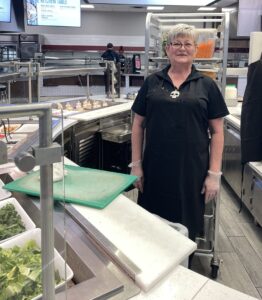
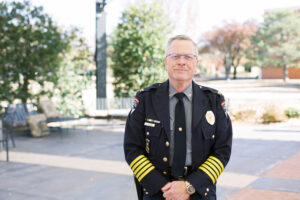
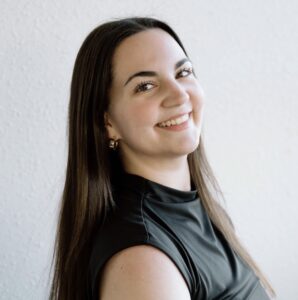

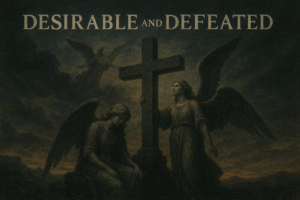
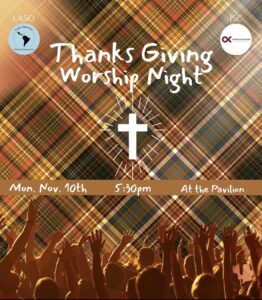
Be First to Comment